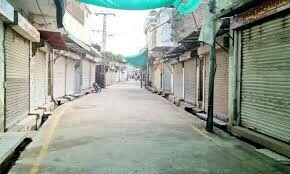WHEN news used to emerge from the tribal areas about violent long-haired religious extremists called the Taliban, there was unanimity in the country about how they should be dealt with. But in the case of the recent protest movement by generally clean-shaven, pleasant-looking, apparently moderate Pakhtuns protesting against the collateral effects of the military’s cleanup operations in Waziristan, there are mixed feelings and some empathy for their demands in the rest of the country.
As the prime minister recently said, their demands are fair but the way they are voicing them is not appropriate. Since the bloodshed on both sides during and after the Kharqamar check post incident, the methodology of protest has gone way beyond inappropriateness.
The two MNAs in the eye of the storm belong to the prominent Dawar and Wazir tribes. While the Dawar tribe is based in North Waziristan, the Wazirs inhabit both North and South Waziristan, areas which share a long border with Afghanistan. Though people from these tribes boast high levels of education, with a significant number of them having set up businesses abroad and locally, their main economic activity has been to leverage their location on the Pak-Afghan border.
That leveraging involves legal and illegal cross-border trade, contacts on both sides of the border and allegedly assisting agencies and groups (including religious ones) of both countries. In a lot of ways they are international in their outlook, and clever in keeping their options open.
There has been a paradigm shift in the form of governance in the tribal areas. The century-old rule through collective responsibility and jirgas is being taken over by the state, followed by an intrusive check on movement and activities of tribals, which is considered necessary by the army for its anti-terrorist operations. This is bound to pique the locals.
Converting a tribal area into a settled one presents challenges.
So while the army and an apologetic provincial government is cracking down and trying to make an example of these two gentlemen, they are becoming heroes for the tribal people and a household name in the country. Ordinary sinners suffer in jails but politicians become demigods. Calling them traitors without actionable evidence adds to their stature.
The PTM is a so-called movement started by Manzoor Pashteen, a charismatic young Pakhtun, based on demands for production of missing persons, reduction of check posts, removal of mines, etc. But the two arrested MNAs — Mohsin Dawar and Ali Wazir — having been elected to parliament, are part of the political process. Thus it is still not clear whether the PTM wants to be a political party or remain a movement.
The most disturbing scene in the brewing crisis is the direct confrontation of the army with the tribesmen. Several video clips show the tribesmen jostling armed soldiers at check posts and elsewhere. This is against administrative norms.
The army is the defender of last resort. If it is the army which has to discipline the emotional tribesmen, then we are playing with fire, as more incidents like the recent one at Kharqamar will happen, making the situation explosive with tit-for-tat killings.
Before the army came into erstwhile Fata some 15 years back, the political agent was lord and master of his domain. That system was demonised and after much debate the tribal areas have been merged with KP.
The moth-eaten deputy commissioner administration, which has no teeth under the new rules, has moved in. The police are trying to grapple with converting the Khasadar force, constituted under tribal law on the tribes’ recommendations and hardly a disciplined entity, into a disciplined one. Courts meant to replace the FCR, a ‘colonial relic’, have yet to start functioning.
The utter confusion caused by the gigantic task of converting a tribal area into a settled one has made the army’s task of clearing the area of terrorists, unenviable. It is therefore in the army’s own interest to step back from manning the check posts and take measures to strengthen the civil administration.
The lives of many soldiers and civilians would have been spared had the Kharqamar check post been manned by a well-trained civil force instead of the army, as the jostling may have resulted in a fistfight rather than a gunfight.
That can only happen if the office of the deputy commissioner is strengthened by giving him magisterial powers and placing armed contingents under his command. The police needs to be funded and empowered to raise enough trained manpower and set up police stations to restore the writ of the state. The politicians need to step forward and, along with the civil administration, provide local leadership to take pressure off the army.
To prevent the tribals’ sense of deprivation in this transformation phase from converting into an insurgency, immediate, out-of-the-box solutions are required for putting an effective civil administration in place to relieve the army from having to confront civilians.
The writer is a former civil servant.
Published in Dawn, June 12th, 2019













































